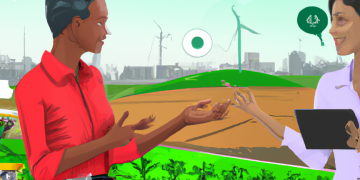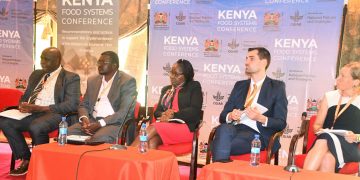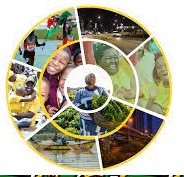This post is cross posted from CGIAR space. Do you have a strong passion for advancing research-based policymaking and enhancing the communication of research with policymakers? If so, we invite you to choose the country where you are most professionally involved and join our survey. Africa Region: Egypt | Ethiopia | Ghana | Kenya | Malawi | Nigeria | Rwanda | Sudan | Uganda Asia Region: Bangladesh | India | Tajikistan This survey should only take approximately […]
New CGIAR Initiative on Fragility, Conflict, and Migration.
The CGIAR Initiative on Fragility, Conflict, and Migration addresses challenges to livelihood, food, and climate security faced by some of the most vulnerable populations worldwide. The Initiative focuses on building climate resilience, promoting gender equity, and fostering social inclusion. Read more Fragility, Conflict, and Migration Kindly subscribe! to the newsletter This post is cross posted […]
We are Hiring, Join our team.
International Food Policy Research Institute (IFPRI)- Kenya Office, seeks to recruit two (2) Research Officers. The successful candidates will have a strong background in quantitative (micro)economic analysis to work with senior research staff on issues related to agricultural development, nutrition and social protection in various countries in Africa and the Middle East. Specifically, the successful […]
Kenya Food Systems Conference Recommendations
From Ministry of Agriculture & Livestock Development-Kenya Kenya recently held the first-ever Food Systems Conference that was aimed at giving recommendations and actions to support the implementation of the Bottom-Up Economic Plan. In his opening remarks that were delivered by PS State Department for Crops Development Kello Harsama, Agriculture CS Mithika Linturi said that […]
NEW PUBLICATION: Impacts of implementing the bottom-up economic plan of jobs, poverty, and food security in Kenya..
By: Clemens Breisinger, Xinshen Diao, Benson Kiriga, Joshua Laichena, Juneweenex Mbuthia, Rose Ngugi, Lensa Omune, James Thurlow This policy note presents results from an economy-wide model to assess the expected impacts of implementing the Bottom-Up Economic Plan in Kenya. The economywide modelling results suggest that the design of the Bottom-Up Economic Plan is consistent […]




